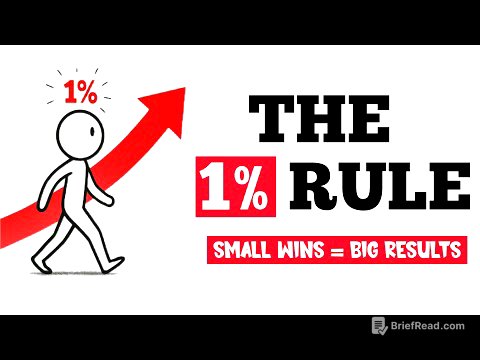TLDR;
Dr. Ben Bickman explains that fat cell growth is primarily driven by insulin levels, not just calorie intake. He introduces the "insulin trick," a strategy focused on managing insulin levels through specific eating habits, particularly in the morning when insulin is naturally high due to the dawn effect. The key is to delay eating for a short period after waking, avoid sugary breakfasts, manage cortisol levels through adequate sleep, and be mindful of caffeine intake, as it can exacerbate insulin responses. This approach aims to reset metabolism, promote fat burning, and make weight loss more sustainable.
- Fat cell growth is primarily driven by insulin levels, not just calorie intake.
- The "insulin trick" involves managing insulin levels through specific eating habits, particularly in the morning.
- Delaying eating, avoiding sugary breakfasts, managing cortisol levels, and being mindful of caffeine intake are key components.
The Role of Insulin in Fat Cell Growth [0:04]
Dr. Ben Bickman clarifies that fat cells expand due to elevated insulin levels, not simply excessive calorie consumption. He illustrates this point by describing experiments where fat cells in a calorie-rich environment only grow when insulin is introduced. Clinical evidence supports this, indicating that obesity is primarily a hormonal issue rather than just a behavioral one. He also mentions the dangerous eating disorder diabulimia, common among young people with type 1 diabetes, where individuals deliberately underdose insulin to stay thin, highlighting that one cannot gain weight without elevated insulin levels, regardless of calorie intake.
The Insulin Trick: Outsmarting Your Body [2:24]
Dr. Bickman introduces the "insulin trick" as a simpler alternative to fasting, which he notes is highly individual and requires discipline. This trick involves specific eating habits to control insulin levels. He points out that insulin levels are naturally high upon waking due to the dawn effect, where cortisol levels rise to promote glucose release. Therefore, the period right after waking up is the most critical for fat gain, as food consumed during this time is more likely to be stored as fat.
Morning Routine and Insulin Sensitivity [4:06]
To manage insulin levels in the morning, Dr. Bickman advises delaying eating for 20-30 minutes after waking to utilize the natural burst of energy. He suggests engaging in light activities like planning the day or going for a walk. When it's time to eat, he recommends a mindful, slow approach, avoiding sugary, carb-heavy breakfasts to prevent insulin spikes. This helps reset metabolism and sets a healthier tone for the day.
Cortisol, Sleep, and Food Cravings [5:23]
Dr. Bickman emphasizes the connection between cortisol levels, circadian rhythm, and stress. Insufficient sleep elevates morning cortisol levels, leading to increased insulin and stronger cravings for sugary foods. Cortisol affects the brain by upregulating proteins like NPY and AGRP, which stimulate appetite, and inhibiting leptin signaling, which reduces satiety. It also enhances dopamine release in the amygdala, increasing cravings for palatable, energy-dense foods.
The Impact of Caffeine on Insulin Levels [7:01]
Dr. Bickman advises cutting out anything that can spike insulin levels from breakfast, including coffee. Caffeine can raise insulin, especially when combined with carbohydrates. Since cortisol is already high in the morning, causing more glucose to enter the bloodstream, drinking coffee can lead to a sharp insulin response, even without eating. A study showed that caffeine increases insulin secretion when consuming carbohydrates, requiring more insulin to clear glucose.
The Importance of Morning Habits [8:11]
Dr. Bickman's insulin trick is about understanding and managing hormonal behavior, particularly in the morning when insulin action is most predictable. Getting the morning right is crucial as it sets the tone for the rest of the day. The balance between cortisol and insulin influences appetite and the likelihood of overeating. A balanced breakfast can kickstart fat burning and signal the body to use energy instead of storing it. While not a quick fix, this approach makes weight loss easier and more sustainable.









